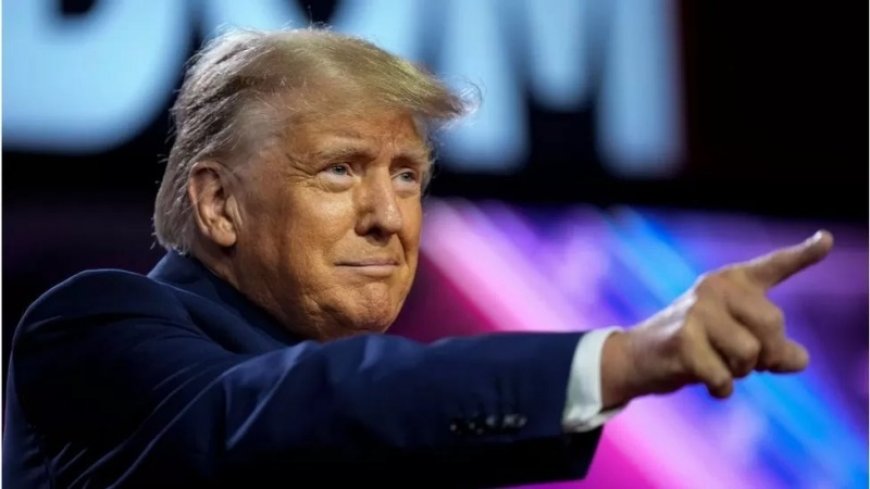Atlantic Drift: How Trump's Return Could Shatter NATO and the Western Alliance

By: A. Mahdavi
With Donald Trump poised to reclaim the Oval Office the fragile threads binding the transatlantic alliance are at grave risk of snapping altogether. His campaign rhetoric teeming with promises to impose punitive tariffs on a host of nations heralds not merely an economic reckoning but a geopolitical rupture of unprecedented scale. Trump’s justifications---ranging from drug trafficking to border blockades---ring as thinly veiled pretexts for a nationalist agenda that could isolate the United States from its closest allies and ignite economic and political chaos across the Atlantic.
The specter of Trump’s prior presidency looms darkly over the international order. Then his barrage of unilateral executive orders blindsided global leaders and undermined the cooperative frameworks painstakingly constructed over decades. Now even with a world more prepared for his disruptive tendencies the potential damage to NATO and the transatlantic bond may be irreparable. Trump’s disdain for multilateralism his overt skepticism of NATO’s relevance and his transactional view of alliances cast a long shadow over what remains of Western unity.
Central to his agenda is the pursuit of economic revival and job creation—objectives that on the surface appear laudable but in execution are laced with peril. Tariffs on imports from China Canada and Mexico among others will almost certainly provoke retaliatory measures triggering a spiral of economic self-destruction. The intricate web of global trade which sustains countless American industries cannot endure such shocks unscathed. Manufacturing costs will soar inflation will surge and the economic growth Trump promises will remain a chimera elusive and unattainable.
For Europe the consequences are nothing short of catastrophic. The European Central Bank already apprehensive braces for an onslaught of U.S. tariffs that could devastate key industries. The Atlantic alliance already weakened by years of mutual suspicion may find itself in a state of désarroi unable to withstand the centrifugal forces unleashed by Trump’s policies. NATO once the bedrock of collective security risks descending into irrelevance as European nations disillusioned and abandoned turn inward or seek alternative partnerships.
Across the Pacific allies like Japan and South Korea view Trump’s resurgence with trepidation. Seoul’s downward revision of its economic forecasts—a preemptive acknowledgment of the impending turbulence---illustrates the cascading effects of an erratic U.S. administration. Meanwhile; the weakening of the U.S. dollar reflects a global loss of faith in American leadership as markets grapple with the volatility that Trump’s presidency invariably portends.
More insidious however is Trump’s apparent strategy of weaponizing unpredictability. By using his bombastic promises as leverage he gambles recklessly with the trust and goodwill of America’s closest allies. This is not diplomacy it is brinkmanship of the most dangerous sort. For Europe; already wearied by the transatlantic discord of the past decade Trump’s return may signal not merely a challenge but a death knell for the postwar order.
In this widening chasm adversaries and opportunists will find fertile ground. Iran for instance could exploit the growing fissures within Western alliances to recalibrate its global standing. With a pragmatic approach Tehran might engage in nuanced diplomacy leveraging shared interests with major powers---such as combating terrorism and managing energy corridors---to counterbalance U.S. hostility. However even as Iran eyes opportunities it must navigate the ever-looming menace of Israel whose provocations could easily escalate into open conflict if not deftly managed.
Yet these potential shifts pale in comparison to the broader implications of Trump’s economic isolationism. His policies could ignite a global trade war plunging the world into a recession of devastating proportions. For Europe the unraveling of the Atlantic alliance would not merely be a political or economic setback---it would represent the collapse of a shared vision of security prosperity and democratic values.
Trump’s presidency embodies a profound turning point one that may consign the transatlantic partnership to history. In its place could emerge a fragmented moribund West grappling with its own disarray as adversaries rise to fill the vacuum. This is not merely a bleak prospect it is a clarion call for Europe to prepare for a future where the United States is no longer a reliable partner but a mercurial power driven by the whims of a leader who sees alliances not as bonds of trust but as deals to be renegotiated---or discarded entirely.












































